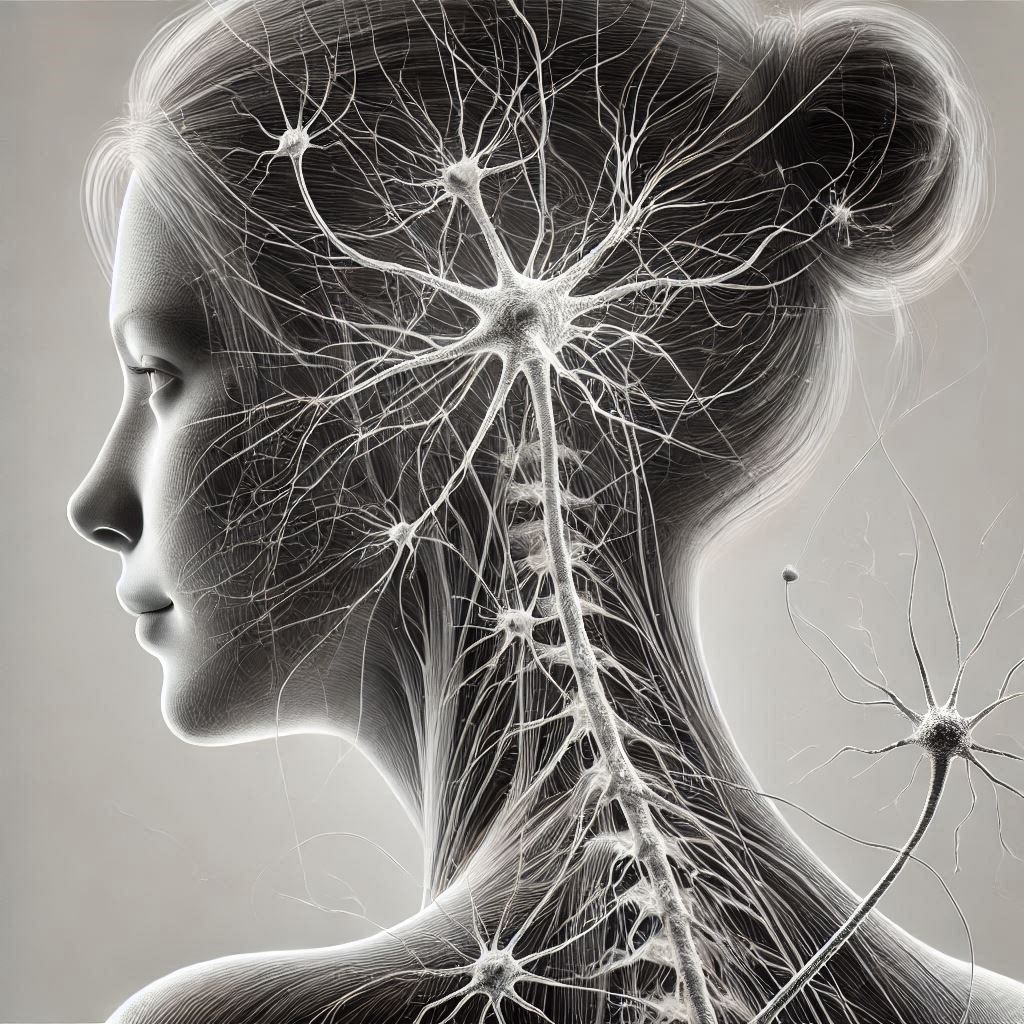Ever wondered if what you eat could actually affect your mental health? When it comes to managing panic disorder, nutrition might just be more important than you think. Panic disorder can wreak havoc on your daily life, making ordinary tasks feel like monumental challenges. But what if adjusting your diet could help?
Our bodies and minds are intricately connected, and what we consume fuels not just physical energy, but mental well-being too. Emerging research suggests that a balanced diet might play a crucial role in managing symptoms of panic disorder, offering a glimmer of hope for those seeking alternative ways to cope.
In this post, we’ll delve into how specific nutrients can impact your mental state, and why paying attention to what you eat could make a noticeable difference in your stress and anxiety levels. By the end, you’ll have a clearer understanding of the potential that lies in your plate to improve both your mental health and overall quality of life. Let’s explore this fascinating link between nutrition and mental wellness.
Understanding Panic Disorder
Panic disorder is a mental health condition characterized by sudden and recurring episodes of intense fear and anxiety. These episodes, known as panic attacks, can be overwhelming and debilitating, affecting various aspects of an individual’s life.
Symptoms of Panic Disorder
Common symptoms experienced by individuals with panic disorder include sudden intense fear, heart palpitations, sweating, trembling, and feelings of losing control. These physical and emotional symptoms can manifest rapidly, often without any apparent trigger, causing a sense of impending doom or a fear of losing touch with reality.
Impact on Daily Life
Panic disorder can significantly impact daily activities, relationships, and overall quality of life. The unpredictable nature of panic attacks can lead to avoidance behaviors, affecting work performance, social interactions, and self-esteem. It can create challenges in maintaining healthy relationships and pursuing personal goals, highlighting the importance of effective management strategies to improve functioning and well-being.
For more information on understanding panic disorder symptoms, you can refer to Mayo Clinic’s guide on Panic attacks and panic disorder.
The Link Between Nutrition and Mental Health
Our diet affects not only our physical well-being but also our mental health. The connection between nutrition and mental health is profound, influencing mood, cognitive function, and overall mental well-being. Let’s explore how specific nutrients and dietary patterns can play a pivotal role in managing conditions like panic disorder.
Nutrients for Mental Health
A balanced intake of essential nutrients is crucial for supporting optimal mental health. Omega-3 fatty acids, commonly found in fatty fish like salmon and walnuts, play a significant role in brain function and reducing inflammation. B vitamins, abundant in whole grains, legumes, and leafy greens, are vital for neurotransmitter synthesis and nerve function. Magnesium, present in nuts, seeds, and spinach, can help regulate stress and anxiety levels. Antioxidants, found in colorful fruits and vegetables, protect the brain from oxidative stress and support cognitive function.
Good Foods for Panic Disorder
Dealing with panic disorder can be a challenging journey, but incorporating certain foods into your diet can help manage symptoms and promote overall well-being. Here are some beneficial options to consider:
- Complex Carbohydrates: These slow-burning carbs provide a steady supply of energy and help regulate blood sugar levels, which can prevent the jitters and mood swings often associated with panic attacks. Examples include:
- Whole grains (brown rice, quinoa, oats)
- Legumes (lentils, chickpeas, black beans)
- Starchy vegetables (sweet potatoes, corn, peas)
- Omega-3 Fatty Acids: Found in fatty fish like salmon, mackerel, and sardines, as well as walnuts and flaxseeds, these essential fats have anti-inflammatory properties and can help reduce anxiety and improve mood. As Emily Dickinson wrote, “Hope is the thing with feathers that perches in the soul.”
- Magnesium-Rich Foods: This mineral plays a crucial role in regulating stress levels and promoting relaxation. Load up on leafy greens (spinach, kale, swiss chard), avocados, nuts, and seeds to ensure you’re getting enough magnesium.
- Fermented Foods: The probiotics found in fermented foods like yogurt, kefir, sauerkraut, and kimchi can help balance the gut microbiome, which has been linked to better mental health outcomes. As Michael Pollan famously said, “You are what you eat ate.”
- Chamomile Tea: This soothing herbal tea contains apigenin, an antioxidant that binds to specific receptors in the brain, promoting a calming effect. Sip a cup when you start to feel anxious or before bedtime to help relax.
- Dark Chocolate: In moderation, dark chocolate (with a cocoa content of 70% or higher) can be a delicious way to boost your mood. It contains flavonoids that have been shown to improve cognitive function and reduce stress levels.
- Water: Staying hydrated is crucial for overall health and can help prevent panic attacks. Dehydration can exacerbate feelings of anxiety and fatigue, so be sure to drink plenty of water throughout the day.
Remember, while these foods can be beneficial, they should be part of a comprehensive approach that includes therapy, stress management techniques, and any prescribed medications. As Virginia Woolf wrote, “One cannot think well, love well, sleep well, if one has not dined well.”
Effects of Diet on Anxiety
Dietary patterns can influence anxiety levels and potentially alleviate symptoms of panic disorder. The Mediterranean diet, rich in fruits, vegetables, whole grains, and healthy fats like olive oil and nuts, has been associated with lower rates of anxiety and depression. Processed foods high in sugar, refined grains, and artificial additives may contribute to increased anxiety and worsen mental health. By focusing on whole, nutrient-dense foods and minimizing processed items, individuals can positively impact their mental well-being and manage anxiety effectively.
For more information on the link between nutrition and mental health, you can refer to authoritative sources like Harvard Health – Nutritional Psychiatry: Your Brain on Food or McLean Hospital – Diet, Nutrition & Mental Health.
Nutritional Strategies for Managing Panic Disorder
Living with panic disorder can be challenging, but incorporating the right nutritional strategies into your daily routine may help alleviate symptoms and improve overall well-being. Let’s explore some key approaches to nutrition that can support individuals dealing with panic disorder.
Balanced Diet Recommendations
A well-rounded and balanced diet is essential for promoting mental health, especially in individuals managing panic disorder. Include a variety of nutrient-dense foods in your diet such as fruits, vegetables, whole grains, lean proteins, and healthy fats. These foods can serve as the foundation for supporting your mental well-being. Opt for whole foods over processed ones to ensure you’re getting all the essential nutrients your body and mind need.
Supplements and Herbal Remedies
In addition to a balanced diet, supplements and herbal remedies can be beneficial in managing anxiety symptoms associated with panic disorder. Omega-3 fatty acids, commonly found in fish oil supplements, have been linked to reducing anxiety levels. Vitamin D deficiency has also been associated with mood disorders, so incorporating a vitamin D supplement may be beneficial. Herbal remedies like chamomile and passionflower are known for their calming properties and can help reduce feelings of anxiety.
By combining a balanced diet with targeted supplements and herbal remedies, individuals with panic disorder can take proactive steps to manage their symptoms and improve their overall quality of life. It’s essential to consult with a healthcare provider or a nutrition expert before making significant changes to your diet or incorporating new supplements to ensure they align with your individual needs and health goals.
For further information on nutritional strategies for easing anxiety, check out this resource for valuable insights.
Remember, small dietary adjustments can make a significant difference in how you feel and cope with panic disorder. Start by making gradual changes and pay attention to how your body responds. Your journey to better mental health begins with the plate in front of you.
More Supplements and Herbal Remedies for Panic Disorder
Omega-3 Fatty Acids
Numerous studies have suggested that omega-3 fatty acids, found in fish oil and certain plant sources, can have a positive impact on mental health. These essential nutrients are known to reduce inflammation in the body, which has been linked to anxiety and mood disorders. Incorporating foods rich in omega-3s, such as fatty fish, walnuts, and flaxseeds, or taking a high-quality fish oil supplement, may help regulate the body’s stress response and alleviate panic symptoms.
Chamomile
Chamomile has been used for centuries as a natural remedy for anxiety and insomnia. This herb contains apigenin, a flavonoid with anti-inflammatory and sedative properties. Drinking chamomile tea or taking chamomile supplements may help calm the mind and promote relaxation, potentially reducing the frequency and intensity of panic attacks.
Valerian Root
Valerian root is a popular herbal supplement known for its calming and sedative effects. It is believed to work by increasing the levels of gamma-aminobutyric acid (GABA) in the brain, which is a neurotransmitter that promotes relaxation. Valerian root may help improve sleep quality and reduce anxiety, both of which can contribute to the management of panic disorder.
Lavender
The soothing aroma of lavender has long been associated with promoting relaxation and reducing stress. Studies have shown that inhaling lavender essential oil or taking lavender supplements can help lower heart rate and blood pressure, two physical symptoms often experienced during panic attacks. Incorporating lavender into your routine, whether through aromatherapy or supplementation, may provide a natural way to manage panic symptoms.
Magnesium
Magnesium deficiency has been linked to increased anxiety and stress levels. This essential mineral plays a crucial role in regulating neurotransmitters involved in the body’s stress response. Supplementing with magnesium, either through dietary sources such as leafy greens, nuts, and whole grains, or through magnesium supplements, may help promote a sense of calmness and reduce the severity of panic attacks.
It’s important to note that while these supplements and herbal remedies may provide some relief for panic disorder, they should not be considered a substitute for professional medical treatment. Always consult with a healthcare professional before incorporating any new supplement or remedy into your routine, especially if you are taking prescribed medications or have underlying health conditions.
Lifestyle Factors and Mental Health
Integrating lifestyle factors such as exercise, sleep, and stress management alongside nutritional interventions is key in managing panic disorder effectively. These factors work synergistically to support overall mental well-being. Let’s delve into two crucial aspects of lifestyle that can significantly impact mental health.
Exercise and Stress Reduction
Regular physical activity plays a vital role in reducing anxiety and stress levels. Engaging in exercises like yoga, walking, or jogging can help release endorphins, the body’s natural stress relievers. Additionally, incorporating stress management techniques such as mindfulness and relaxation exercises can further enhance the benefits of exercise in managing panic disorder. By combining physical activity with mindfulness practices, individuals can build resilience against stressors and improve their overall mental resilience.
The Gut-Brain Connection
The gut-brain axis plays a crucial role in mental health, influencing mood, cognition, and behavior. Maintaining gut health through probiotics and fiber-rich foods can positively impact anxiety levels in individuals with panic disorder. Probiotics help balance the gut microbiome, which in turn can regulate neurotransmitter levels linked to anxiety. Including fiber-rich foods like fruits, vegetables, and whole grains can support gut health and promote a healthy microbiome, contributing to improved mental well-being.
By focusing on lifestyle factors like exercise, adequate sleep, stress management, and nutrition, individuals can create a holistic approach to managing panic disorder. These lifestyle changes, when combined with targeted nutritional interventions, can significantly improve symptoms and enhance overall quality of life for individuals dealing with anxiety disorders.
Seeking Professional Guidance
When managing panic disorder through nutrition, it’s crucial to seek guidance from healthcare providers, nutritionists, or mental health professionals. Incorporating dietary changes or supplements into your treatment plan requires expert advice tailored to your specific needs and medical history. Here are some key points to consider:
Consult Healthcare Providers
Consulting with healthcare providers such as doctors or psychiatrists is essential before making significant dietary changes. They can provide insights into how nutrition can complement traditional treatment methods for panic disorder and ensure that your overall well-being is prioritized.
Guidance from Nutritionists
Nutritionists play a vital role in creating personalized meal plans that support mental health. They can recommend foods rich in essential nutrients like omega-3 fatty acids or magnesium, which are known to have a positive impact on mood and anxiety levels.
Mental Health Professionals
Mental health professionals, including therapists or counselors, can offer valuable support and guidance when navigating the relationship between diet and mental well-being. They can help you address any emotional aspects that may be influencing your eating habits and mental health.
By collaborating with a multidisciplinary team of experts, you can create a holistic approach to managing panic disorder that integrates nutrition, therapy, and medical treatment effectively. Seeking professional guidance ensures that your dietary choices are safe, evidence-based, and aligned with your overall treatment goals.
For more information on professional guidance in managing panic disorder, you can refer to resources such as clinical practice guidelines and treatment recommendations from reputable sources like the National Center for Biotechnology Information.
Conclusion
Nutrition plays a pivotal role in managing panic disorder. The relationship between what we eat and how we feel isn’t just theoretical; it’s backed by science. A balanced diet rich in essential nutrients can alleviate anxiety symptoms, stabilize mood, and enhance overall mental well-being.
Moreover, personalized nutrition strategies tailored to individual needs can be a game-changer. By addressing specific deficiencies and dietary requirements, one can unlock profound improvements in their mental health journey. It’s a holistic approach that deserves attention.
Exploring these personalized nutrition strategies can transform how you manage panic disorder, making it a vital component of a comprehensive mental health plan.








